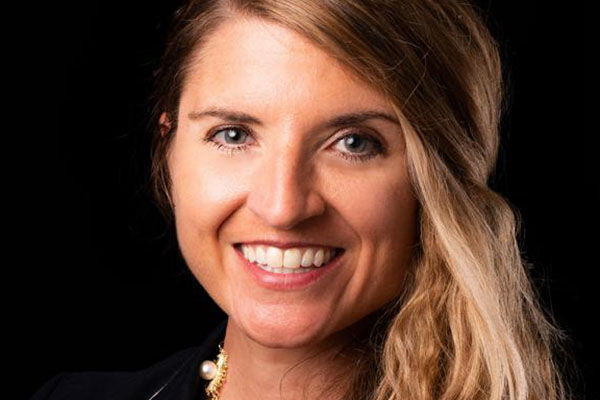BOONE, N.C. — Dr. Sonja Ardoin, assistant professor of student affairs administration in the Department of Human Development and Psychological Counseling, housed in the Reich College of Education, has received $3,000 in grant funding from the American College Personnel Association (ACPA)-College Student Educators International for her project titled “Experiences of Social Class and Classism in Higher Education.”
Ardoin’s grant is part of the 2019–21 Emerging Scholar Award she received from ACPA-College Student Educators International — one of the most prestigious recognitions for early-career scholars in the field of student affairs.
Ardoin said her study, which began in March 2019 and will conclude in May 2021, “will explore and describe how and in what ways social class identity and classism show up in and influence higher education experiences.”
“Higher education is not class neutral; in fact, classism is still pervasive in the academy and can, consciously or not, affirm and replicate social class distinctions,” Ardoin said, citing Oregon State University sociology professor Dr. Allison L. Hurst and University of Minnesota student affairs research analyst Dr. Krista M. Soria.
Ardoin said the goal of the project is to construct a “universal essence,” or a shared experience of social class in higher education from the perspective of individuals from poor and working class backgrounds.
Ten participants for each of the study’s two phases will be selected through purposive and criterion sampling strategies, Ardoin said, with each participant self-defining as a current administrator or faculty member at a four-year public college or university who has a poor or working class background.
Her research will pose the following questions to participants:
- How does social class and classism show up in higher education?
- How about specifically in your office or department?
- How about more broadly in your institution and in the field? In what ways, if any, does your own social class influence your work in higher education?
Data collection methods for the study will include semistructured individual interviews and participant journals guided by reflective prompts.
Ardoin said the data will be transcribed, reviewed and analyzed through an inductive, three-phase process, including identifying significant statements, constructing meaning units and describing the how and what, or essence, of the phenomena of social class identity and classism in higher education.
What do you think?
Share your feedback on this story.
About the Reich College of Education
Appalachian State University offers one of the largest undergraduate teacher preparation programs in North Carolina, graduating about 500 teachers a year. The Reich College of Education enrolls more than 2,000 students in its bachelor’s, master’s, education specialist and doctoral degree programs, with offerings that span multiple fields — from teacher preparation, counseling, and therapy, to higher education, school and student affairs administration, library science, educational leadership and more. With over 10,000 alumni employed in North Carolina public schools, there is at least one Reich College graduate in every county in the state. Learn more at https://rcoe.appstate.edu.
About Appalachian State University
As a premier public institution, Appalachian State University prepares students to lead purposeful lives. App State is one of 17 campuses in the University of North Carolina System, with a national reputation for innovative teaching and opening access to a high-quality, cost-effective education. The university enrolls more than 21,000 students, has a low student-to-faculty ratio and offers more than 150 undergraduate and 80 graduate majors at its Boone and Hickory campuses and through App State Online. Learn more at https://www.appstate.edu.




![How NCInnovation Is Rethinking Economic Development in North Carolina [faculty featured]](/_images/_posts/2026/02/rethinking-economic-development-600x400.jpg)








